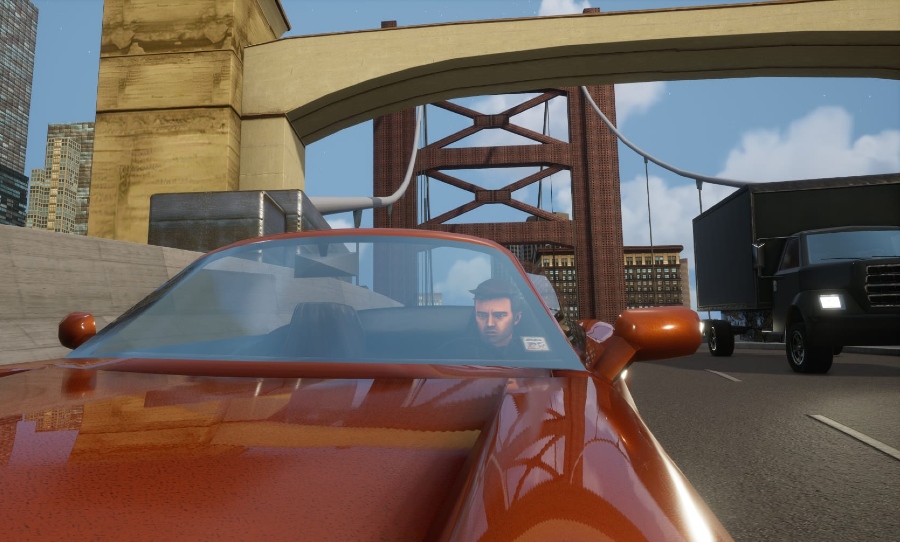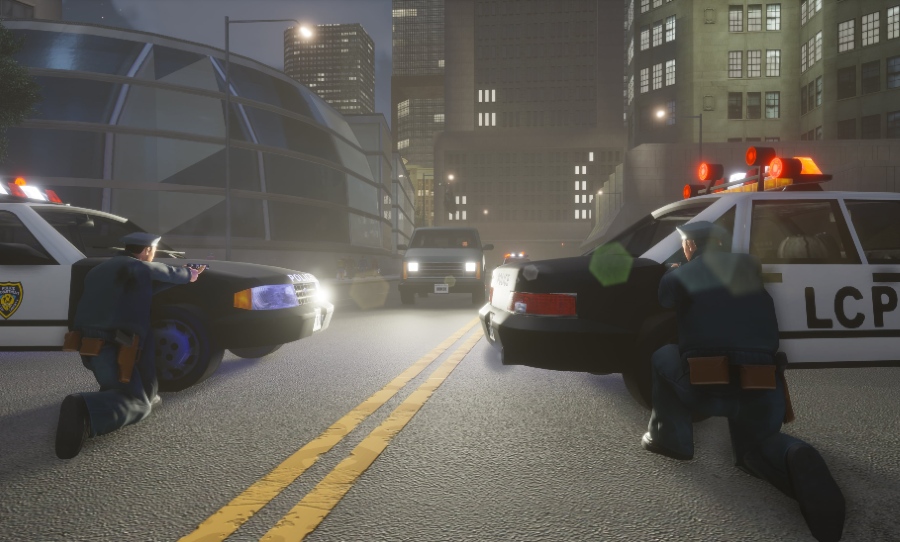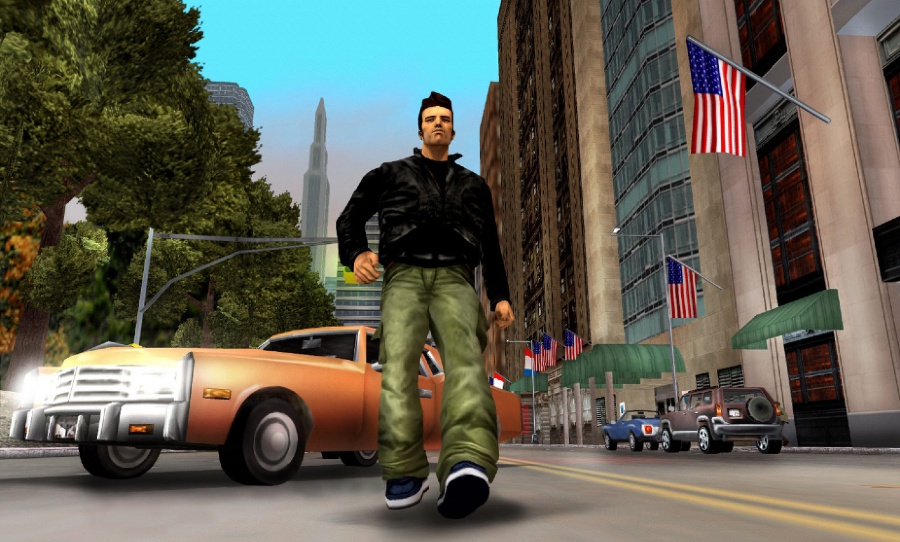Grand Theft Auto 3 – the myth, the legend – has just turned 20 years old. We look back at how it shattered expectations and changed the course of the entire video games industry.
I still remember when Grand Theft Auto 3 first came out on PS2. The promotional pictures I’d seen in magazines had left me intrigued and tentatively excited; although I was admittedly sceptical Rockstar Games could recapture the chaotic energy that made the first two games cult hits, particularly in a 3D environment. It turns out I was spectacularly wrong.
My jaw nearly hit the floor when it dawned on me how big Grand Theft Auto 3 actually was. And even more impressive was that the game’s size didn’t come at a cost to player freedom. You could seemingly do anything and everything; steal ambulances, rob and beat up the citizens of Liberty City, race cars, and infamously, you could even procure the service of prostitutes.
To a 13-year-old boy this really did feel like everything, at least in the context of video games in 2001. This level of freedom not only felt revolutionary, it felt curiously taboo too.

Grand Theft Auto 3 and the morality of video games
With improved graphics and a more cinematic presentation, Grand Theft Auto 3 began to attract a level of media scrutiny and attention the series’ previous instalments hadn’t. The debate regarding censorship in video games immediately became far more nuanced as a result, simply because there had never been a game more complex in terms of player agency.
Up until Grand Theft Auto 3 video games were generally thought of as linear, meaning that if you could do something, it was considered an intended part of the experience. Therefore, if a game allowed you to murder somebody, it was assumed the game’s developers were responsible.
Grand Theft Auto: The Trilogy – The Definitive Edition
Coming November 11 for PS5, Xbox Series X|S, Nintendo Switch, PS4, Xbox One, and the Rockstar Games Launcher. Pre-Order Now: https://t.co/sVYRq0sqVe pic.twitter.com/rVGIXjOXfW
— Rockstar Games (@RockstarGames) October 22, 2021
And this is exactly how the media initially portrayed Grand Theft Auto 3 and the team behind its creation.
In hindsight though, this was just an early example of the player agency afforded by ‘sandbox’ game development principles. Just because you can cheat at chess by stealing pieces off the board, doesn’t mean that the creator of chess intended cheating to be a part of the game. Cheating just happens to be an inherent possibility in the reality of board games.
Similarly, the ability to commit acts of violence and criminality is an inherent possibility in a video game that’s main aim is to create the illusion of complete freedom. That is largely understood and accounted for in today’s media, but it was Grand Theft Auto 3 that blew the lid off that whole discussion.

Open-world freedom and player-led narrative
While controversy undoubtedly played large a role in GTA’s ascent to the pinnacle of successful video game series, its true legacy lies in the ambition of its open world.
Sure, there had been computer roleplaying games like Bethesda’s The Elder Scrolls: Daggerfall that dwarfed Grand Theft Auto 3‘s Liberty City in terms of size. But the way the game world felt alive and responsive was unlike anything that had come before it.
This was critical to how most players experienced and interacted with the game, often choosing to ignore main questlines in favour of player-led storytelling. What I mean by this is rather than you being Super Mario on his quest to save Princess Peach, Mario is you.
Grand Theft Auto 3 gave players the ability to throw off their red Mario cap, forget about Peach, and walk out of the castle we’d all been led to believe was the entire world.

It’s difficult to overstate how big a deal this was at the time; and its almost impossible to comprehend how profound an impact it had on the video game industry. Even games as far removed from the GTA series as Minecraft and Deathloop bear the hallmarks of this innovation.
Sceptical? Here’s Deathloop director Dinga Bakaba explaining the influence of Grand Theft Auto 3, and how it ultimately rewrote the rulebook to video game development:
“I had a group of three friends and we would spend a lot of time together playing games. And when GTA III came out, we would play that all the time. Thing is: we weren’t doing any story missions or side missions. It was days and weeks and months of messing around in the city, telling ourselves stories, reacting to the living world in chaotic ways, and setting challenges to each other.”
“And the most magical part was that every time there was a visitor beyond that core group, they would get involved naturally, not necessarily playing but commenting, asking the player to try things….This experience opened my eyes to the power of emergent gameplay and stories, seeing games maybe for the first time as a really expressive medium beyond one’s character choice in a fighting game or combo lines in a skating game, and that the stories it created were something that could be enjoyed not just by players, but viewers.”
“[It’s] something that became intertwined with the medium with the rise of gameplay streaming, and more specifically the amazing GTA Online scene, with its role-playing streams this time involving more than one simultaneous player.”
Grand Theft Auto 3 was released October 23 2001. It is being rereleased as part of Rockstar’s Grand Theft Auto: The Trilogy remaster collection, which comes to PS4, PS5, PC, Switch, Xbox One and Xbox Series X/S on November 11 2021.